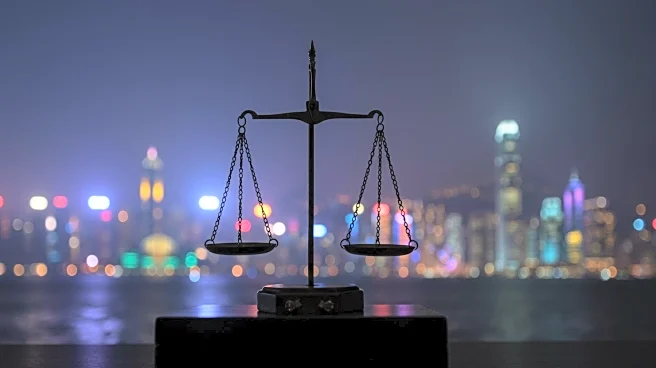What's Happening?
A Hong Kong court has commenced closing arguments in the national security trial of Jimmy Lai, a prominent pro-democracy media mogul. Lai, the founder of the now-defunct Apple Daily newspaper, faces charges of colluding with foreign forces and sedition under Hong Kong's national security law. The trial, which began in December 2023, has experienced multiple delays and is now in its final stages. Prosecutor Anthony Chau highlighted Lai's international connections, including meetings with U.S. political figures, as evidence of his alleged collusion. Lai has pleaded not guilty and could face a life sentence if convicted. The verdict is expected in the coming weeks or months.
Why It's Important?
The trial of Jimmy Lai is significant as it underscores the tensions between Hong Kong's pro-democracy movement and the Chinese government's efforts to enforce national security laws. Critics argue that these laws are used to suppress dissent and limit press freedom, while officials claim they restore stability. Lai's case has drawn international attention, with figures like President Trump expressing support for him. The outcome of this trial could have implications for press freedom and civil liberties in Hong Kong, affecting how international communities view China's governance in the region.
What's Next?
The court is expected to deliver a verdict in the coming weeks or months. The trial's conclusion may prompt reactions from international stakeholders, including political leaders and human rights organizations. Depending on the verdict, there could be further diplomatic discussions or actions, particularly from countries concerned about press freedom and human rights in Hong Kong. The trial's outcome may also influence future legal proceedings under Hong Kong's national security law.
Beyond the Headlines
The trial of Jimmy Lai highlights broader issues of press freedom and the role of media in political dissent. Lai's case exemplifies the challenges faced by media figures in regions with stringent national security laws. The trial may set precedents for how similar cases are handled in the future, potentially affecting the landscape of media operations and freedom of expression in Hong Kong and beyond.









